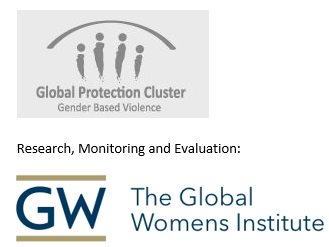|
Guiding Principle
|
Key Action Points
|
Examples of good practice in humanitarian settings
|
|
Safety
|
Ensure the physical safety of the survivor
|
- Be aware of the safety issues in the particular context (sexual violence can be used to systematically destabilize populations and destroy bonds within families and communities, advance ethnic-cleansing, or even supply combatants with sexual services) and the best method of response, for example, by conducting rapid assessments.
- Make adequate emergency response measures for women who have been raped available at the earliest stages of an emergency, along with food, shelter and water– including proper medical examination, emergency contraception, and prevention and treatment for sexual transmitted infections, including HIV/AIDS, and psychosocial services.
- Conduct ongoing assessments to determine gender-based safety issues related to the provision of water and sanitation, food distribution, shelter and site location and design, etc.
- Listen to the needs needs of the community especially the voices of women in developing programmes to both prevent and respond to VAWG; do not assume that what is best practice for one community works in all cases. Conduct awareness-raising about the security and safety issues with women and community members, including in camps, including mapping unsafe locations and developing safety plans.
- Recruit staff in a manner that will discourage sexual abuse and exploitation and inform staff and partners of their obligations. Draft and support a Code of Conduct for employees that effectively outlaw abuse of power, whereby entitlements are withheld, only made available conditionally, or used to coerce or induce sexual favours. Ensure that all relevant guidelines and reference material are made available in the field site (in appropriate languages).
|
|
Confidentiality
|
Ensure privacy and confidentiality
|
- Do not share any information regarding a survivor without the survivor’s informed consent particularly while working on multi-sectoral coordinated activities. The VAWG coordination mechanism should ensure that proper confidentiality policies are in place for meetings and discussions between humanitarian organizations, constituent communities (host and refugees), health and social services, police and security forces, and the justice systems (including traditional or customary law and national legal).
- Humanitarian actors that encounter VAWG survivors in their work, should immediately ensure privacy so that no one can overhear. In low resource settings where no such space exists, creative measures such as walking to another part of the facility with the client or to an outdoor patio might have to be taken.
- When working with young or unaccompanied minors or adolescents, humanitarian organizations should ensure that there are systems in place to ensure their privacy. When necessary—family members should not be apprised of the reason for their visit.
|
|
Do not make reporting mandatory
|
- Prioritize the well-being of survivors and the delivery of services over data collection or any other secondary objectives.
|
|
Respect
|
Respect the survivor’s dignity and choice at all times
|
- Maintain a non-judgemental manner concerning the survivor and her behaviour.
- Remind survivors that violence is not their fault and abuse should not be tolerated (Carreta, 2008).
- Put in place referral services to assist the survivor with all levels of intervention.
|
|
Ensure that female service providers are available
|
- Conduct medical and legal interviews and examinations by staff of the same sex as the survivor.
- Ensure survivors have access to same-sex health care providers.
- Whenever possible, engage same-sex advisers, and interpreters.
|
|
Non-discrimination
|
Do not charge for services
|
- Review budgets to expand services, where necessary to VAWG survivors.
- Ensure that services and prevention initiatives are free of cost (Schechtman, 2008; Claramunt and Cortes, 2003).
- Ensure linkages with the community, especially through community-based and non-governmental organizations. Identify appropriate means for reaching out the most marginalized members of the community about availability of services. (Jewkes, 2006).
|
|
Provide equitable services
|
- Ensure the same level of quality of care and assistance for all persons seeking support.
- Ensure that programmes are age-specific and tailored to different sub-groups with wide access across a variety of settings, including considerations of geographic, cultural and linguistic diversity.
- Ensure that a range of support options are available that take into account the particular needs of women facing multiple discrimination (United Nations, 2006a).
|
